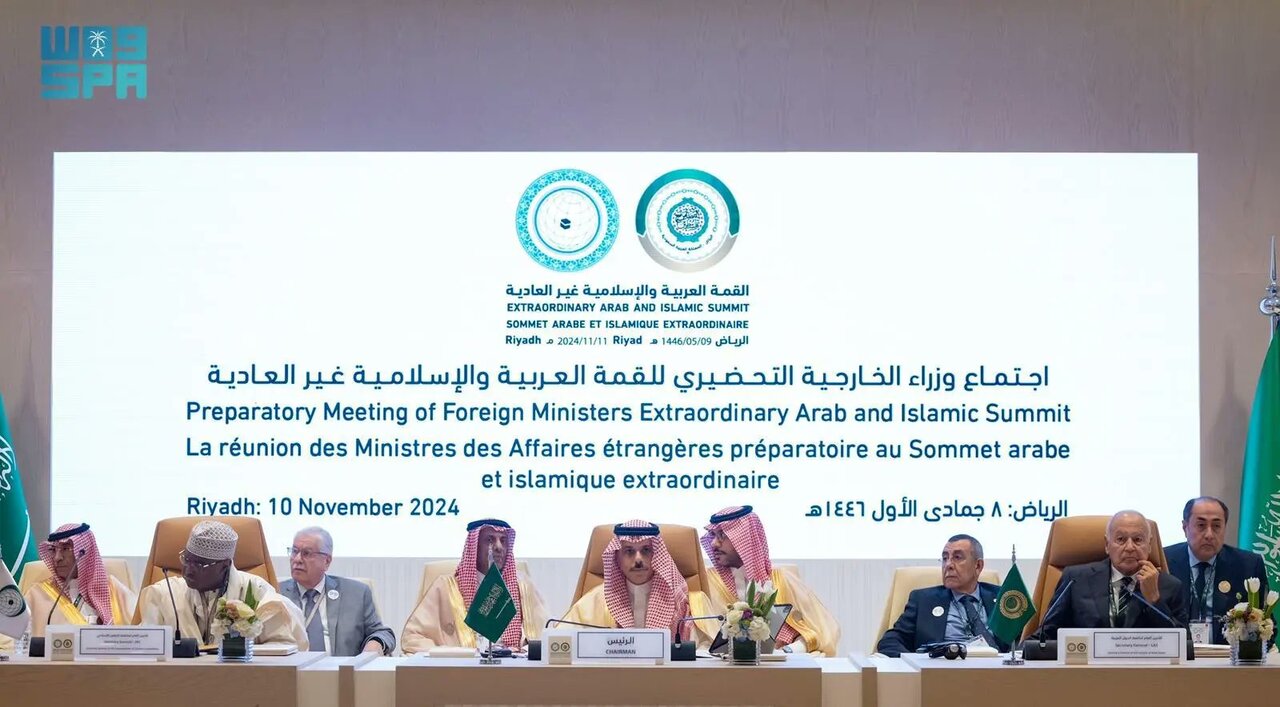Iran pushes for Israel’s expulsion from UN and full arms embargo at Riyadh summit

TEHRAN – In a call for international action, Iran’s Deputy Minister of Legal and International Affairs, Kazem Gharibabadi, urged the United Nations to expel Israel and implement a comprehensive arms embargo and economic sanctions against it.
Gharibabadi’s statements came during a high-stakes joint meeting in Riyadh on Sunday, where foreign ministers from the Organization of Islamic Cooperation (OIC) and the Arab League gathered to address the escalating violence in Palestine and Lebanon.
During the meeting, Gharibabadi thanked Saudi Arabia for convening the emergency summit, commending the country's leadership amid the severe and worsening crisis across the region.
He referred to the ongoing situation in Gaza and Lebanon as a disgrace to humanity and a double injustice inflicted on populations who, he claimed, have been deprived of their fundamental rights for over seven decades under foreign occupation.
The Iranian official emphasized the unwavering support from the United States and other Western nations for Israel's actions, which he noted as war crimes, crimes against humanity, ethnic cleansing, racial discrimination, and genocide.
According to Gharibabadi, this support effectively shields Israel from accountability and gives it carte blanche in its dealings with Palestinians and neighboring nations. He stated that Palestinians have an undeniable right to defend themselves and resist occupation without requiring approval from any external party.
While acknowledging the collective efforts of OIC and Arab League member states, Gharibabadi underscored Iran's stance that the current measures were insufficient. He stressed that the Islamic Republic of Iran expects more tangible and impactful actions from the international community to halt what he described as Israel's violations.
In addition to sanctions, Gharibabadi called for immediate and practical steps, such as establishing a ceasefire in both Palestine and Lebanon, opening humanitarian corridors, releasing Palestinian detainees, and facilitating the dignified return of refugees to their homeland. He also advocated for international aid to begin the reconstruction process in Gaza, which has suffered extensive damage from ongoing hostilities.
Highlighting Israel’s blatant disregard for the United Nations, Gharibabadi cited incidents in which Israel allegedly undermined UN efforts: disregarding the UN Charter, denouncing the UN Secretary-General as undesirable, restricting the activities of UNRWA (the UN agency for Palestinian refugees) in occupied territories, and ignoring the International Court of Justice’s provisional orders.
He stated that these actions, alongside what he views as continuous aggression, warrant Israel's expulsion from the UN.
Gharibabadi concluded his remarks by calling for the reactivation of the UN's apartheid committee to address Israel’s systemic violations of international law and its expansion of conflicts across the region, including Lebanon, Syria, and Yemen.
He urged member states to issue a strong condemnation of Israel’s policies, which are part of a broader strategy to destabilize the region.
